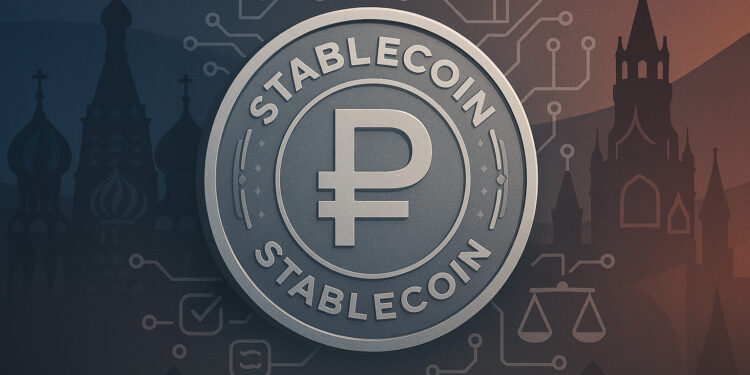- Russia’s Finance Ministry has called for the development of a local stablecoin, citing risks to financial sovereignty, after Tether froze USDT wallets linked to the sanctioned exchange Garantex.
- Deputy director Osman Kabaloev said Russia needs tools similar to USDT for cross-border payments, as reliance on dollar-pegged tokens makes the country vulnerable to external control.
- With the Digital Ruble delayed and Bitcoin used for international trade, Russia aims to reduce USD exposure; however, the central bank remains skeptical of broader crypto use.
Following the freezing of Russia-linked wallets holding USDT, the country’s Finance Ministry is now calling for homegrown stablecoin solutions pegged to alternative currencies, while officials warn that relying on tokens like USDT could harm Russia’s financial sovereignty.
According to a state media report, Osman Kabaloev, deputy head of the ministry’s financial policy department, said on Wednesday that the incident underscored the need for Russia to develop its own version of cross-border payment rails:
The recent blockage makes us think that we need to consider creating internal tools similar to USDT.
 Osman Kabaloev, deputy head of the ministry’s financial policy department
Osman Kabaloev, deputy head of the ministry’s financial policy departmentThe comments follow Tether’s freeze of wallets holding over 2.5 billion roubles (around US$30 million, or AU$46M) on Garantex, a Russian crypto exchange hit by fresh EU sanctions in early March. The platform was forced to halt operations soon after.
You may ask what happened to Russia’s crypto initiatives, such as the Digital Ruble. That project is essentially stuck, seemingly forever. It was originally scheduled to be released this year, but it suffered another delay due to “technical and strategic concerns”.
So far, the country can only rely on Bitcoin to settle important trades, including oil, with its international partners, all just to circumvent sanctions. This announcement comes months after President Vladimir Putin stated that Bitcoin and cryptocurrencies are reliable and cost-effective tools that can serve as alternative payment methods.
Related: Coinbase Urges Next Australian Federal Gov to Act on Crypto Regulation.
To Resign or Fight?
Not everyone is pleased about Russia’s use of crypto or its efforts to soften regulations, and Russia’s central bank is not particularly thrilled. Central Bank Governor Elvira Nabiullina reiterated her opposition to crypto for domestic payments but acknowledged that firms are actively testing its use in foreign transactions under government oversight.
Moscow’s pivot to building its own stablecoin isn’t about replicating Tether, of course, it’s just about control, and Dollar-denominated stablecoins like USDT are proving to be geopolitical liabilities for sanctioned regimes.
Creating a local alternative pegged to something other than USD could sidestep future freezes while retaining crypto’s key advantage: frictionless cross-border value transfer.
Related: Bitcoin Behaving Differently Than in Past Bull Runs, Bitwise Analyst Says
Credit: Source link






















